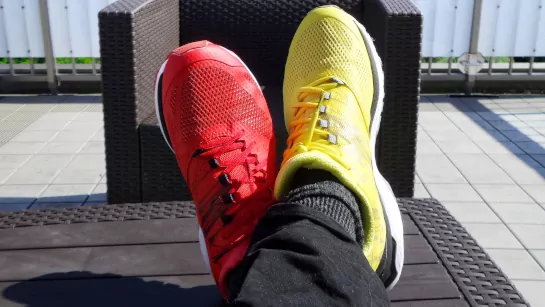This blog post is about the differences between coaching and counseling, it is not about counseling vs coaching as neither of them is better than the other. Which one is right for you, depends on your personal needs.
Coaching and counseling are both ways to help people improve their lives, but they differ in a few key ways.
Coaching is more focused on helping people achieve specific goals, while counseling tends to be more open-ended and explores a wider range of issues. Counseling also often involves exploring the client’s past, while coaching is more present-focused.
Finally, counseling is typically provided by professionals such as psychologists or therapists, while coaching can be provided by anyone who has been trained in how to do it.
The counseling process

A counseling process typically begins with an initial assessment to understand the client’s needs and goals. From there, counseling sessions typically involve discussions of the past in order to gain insight into current behaviors and patterns.
Counseling can be used to help people identify and process emotions, create a safe space for them to express themselves, and learn new skills for managing stress or handling difficult situations. It also helps people develop a better understanding of themselves, their relationships, and their life goals. Also, counseling is geared towards self-discovery and emotional growth.
It may also help to improve your mental health. This does not mean you are sick mentally. With all the stress we have in todays world, mental health has become an important topic for most of us.
The coaching process
In contrast, coaching is more active in nature with the goal of helping clients meet specific goals or work towards desired outcomes. Coaching does not necessarily focus on exploring the past, but rather on creating solutions for the present and future.

Coaching sessions are often focused on developing action plans that set achievable goals, which can then be tracked and monitored over time. Coaching is more goal-oriented, with the aim of helping people reach their desired objectives by leveraging their strengths and resources.
However, being focused on goals does not mean coaching is only useful for people which like to achieve tangible goals, like business success or similar. Coaching could also help achive non-tangible goals, like creating a better Work-Life-Balance or more harmonious relationships.
Both counseling and coaching can help individuals live happier, healthier lives; however, one should choose which route would best suit their individual needs depending on what they are looking to achieve.
For instance, counseling could be best suited for someone who requires help exploring deeper emotional issues, while someone who wishes to reach a specific goal may benefit more from coaching.
Ultimately, both counseling and coaching can provide a valuable service in helping individuals figure out what they want out of life and how best to get there.
1. What is counseling and what is coaching
Coaching and counseling are both forms of professional support that aim to help people achieve their goals. However, there are some key differences between the two. Counseling typically involves working with a therapist or counselor who will help you explore your feelings and emotions, while coaching focuses on helping you develop practical skills and strategies. Coaching is also usually shorter-term than counseling, typically lasting 6-8 weeks, whereas counseling can continue for months or even years.
Coaching is more directive and focuses on the present, while counseling takes a more holistic approach that includes exploring past experiences and relationships. Counselors often work with clients to develop strategies for coping with or changing difficult situations, while coaches help clients identify and achieve specific goals.
2. How counseling and coaching differ
Counseling is a form of personal development that focuses on exploring a person’s past experiences, emotions, and how they interact with the world. It often involves identifying unhealthy behaviors, working through traumas, and developing healthy coping skills. Through counseling, people can gain insight into their own patterns of behavior and make changes to live more fulfilling lives.

Coaching is different in that it focuses on the present and future, rather than the past. A coach will help their client to develop strategies, set meaningful goals, and create action plans for achieving those goals.
It can be thought of as a kind of personal training for life: aiming for success in relationships, work, and other areas of life. Coaching is often shorter term than counseling, making it a great option for those looking to gain clarity on their current situation and take action toward their desired future.
Whether counseling or coaching is the right fit for you, it’s important to choose a professional who is experienced in the specific area of development you need. With the right counselor or coach, your journey to personal growth and self-discovery can be an enriching experience.
3. The benefits of counseling over coaching
It is often said that counseling and coaching are two very different disciplines. While counseling may be more focused on addressing personal issues, coaching is more geared towards achieving specific goals. However, there are some benefits to counseling that go beyond what coaching can offer.
Counseling can provide individuals with a safe space to explore their feelings and emotions. This type of exploration is beneficial in helping people understand themselves better and identify any patterns or behaviors that may be holding them back from achieving their goals. Coaching cannot offer the same level of depth when it comes to exploring personal issues.
In addition, counseling can help individuals deal with past traumas or hurtful experiences that have had a negative impact on their lives. Oftentimes, these memories or experiences continue to haunt people long after the event has occurred, leading to low self-esteem, anxiety, and other problems.

Counseling can provide a way for people to work through these issues and move on with their lives. Coaching cannot do this as effectively because it does not address the emotional side of things as much as counseling does.
Lastly, counseling provides individuals with a support system that they may not have access to otherwise. Having someone who can listen and provide guidance during difficult times is invaluable and counseling provides that much-needed support. Coaching may help set goals, but it cannot replace the emotional connection counseling offers.
Ultimately, counseling and coaching both serve an important purpose in helping individuals achieve their goals. However, counseling has unique benefits that coaching does not offer, such as providing a safe space for exploring emotions and providing a supportive environment. If you’re looking for greater insight into yourself or your situation, counseling could be the best option for you.
4. When to choose counseling and when to choose coaching

Now as you have a better understanding of what coaching and counseling is, we have to find out when or why to chose the one or the other. When you are clear about which one to use, it will prevent disappointment as well as wasting time and money using the wrong service.
Here are some reasons when to chose counseling:
- wanting to change a personal behavior
- needing help with a past traumatic experience
- wanting to understand your relationships better
- needing support for handling strong emotions
- finding the root cause of a personal issue
- resolving emotional conflicts.
These are just a few reasons for chosing counseling. Now, let’s take a look which reasons could lead to chosing coaching:
- needing help setting focused goals
- wanting a route map plan for achieve a specific goal
- having more clarity on the action items to perform
- needing help to stay focused on achieving the set goal
- wanting to create a toolbox of how to react or what to do in specific situations
- needing feedback on something you plan to do or already have done.
There are probably more reasons why and when to chose coaching and counseling. You might even come up with your own reasons, why you need one of them.
When deciding between counseling and coaching, it is also important to consider your budget. Counseling can be more expensive than coaching, but both services are worth the investment if you are looking for long-term change.
5. How to find the right counselor or coach for you
If you’re looking for help to improve your life or business, it’s important to find the right counselor or coach. Not all counseling or coaching is created equal, and it’s important to find someone who understands your needs and can help you overcome any blocks that are holding you back.

There are a number of ways to find a good counselor or coach. One way is to ask friends or colleagues for recommendations. Another is to do an online search, using keywords like “[your topic] counseling” or “coaching for [your topic]”. You can also check the websites of association for a list of qualified professionals in your area.
Here are a few tips to help you find the right counseling or coaching for your needs:
1. Ask friends, family, and colleagues for recommendations. Personal experiences from people who have worked with a counseling professional or coach in the past can provide valuable insight.
2. Look online for counseling or coaching professionals who specialize on the topic you need assistance with. Use keywords like “[your topic] counseling” or “coaching for [your topic]” to narrow down your search results and identify qualified professionals who work specifically with creativity.
3. Check out the websites of association. These organizations are dedicated to helping professionals succeed in their craft, and they maintain a list of counseling and coaching professionals who specialize in your topic.
By doing your research and selecting the right counseling or coaching professional, you’ll be able to maximize the effectiveness of these sessions so that you can reach your goals more effectively.
6. The cost of counseling and coaching
Most people know that counseling and coaching can be helpful in developing and improving personal relationships. But what many people don’t realize is that counseling and coaching can also be extremely helpful in developing and improving professional relationships. In fact, both can play a vital role in helping professionals achieve their goals both professionally and personally.
Counseling and coaching provide individuals with an opportunity to explore their thoughts and feelings openly in a safe, confidential setting. This type of environment can be extremely beneficial for those who are looking to improve their professional relationships.
Coaching can help individuals develop the skills they need to succeed professionally, while counseling can help them deal with any personal issues that may be impacting their work performance.

Many professionals choose to seek out counseling or coaching when they feel stuck or lost career-wise. In some cases, all it takes is a few sessions with a counselor or coach to get back on track. Professional counseling or coaching can provide individuals with the tools they need to move forward confidently in their careers.
Some people may shy away from counseling or coaching because they think it will be too expensive. However, the cost can be surprisingly affordable. Depending on the type there are plenty of options available to fit your budget. Plus, counseling and coaching can provide many benefits that make it well worth the investment.
The cost actually depend on your personal needs. However, remember that counseling could be a more long-term engagement. As of the long-term character it may imply higher cost. On the other hand, coaching could be expensive too, if you chose to work with a top-noche coach. Starting out with one of them, you should keep your awareness on the financial impact as well.
Also, when you are willing and able to do things yourself, self-coaching might be another more inexpensive option for you as well.
7. How to get started with counseling or coaching
No matter the reason, counseling or coaching can be an extremely valuable tool for self-improvement. Fortunately, there are many ways for you to get started with counseling or coaching, depending on your needs and budget.
One option is to see a counselor or coach in person. This can be a good choice if you need face-to-face support and want someone who can give you personalized attention. However, it can also be expensive.
Another option is online counseling or coaching. This is a great choice if you want the convenience of working with a counselor or coach from home, without having to leave your computer. Plus, it tends to be much more affordable than in-person services.
Conclusion
Counseling and coaching can be a powerful tool for professional growth, providing individuals with the tools they need to achieve success both personally and professionally. Whether you choose in-person or opt for more affordable online counseling or coaching services, there are plenty of options available that fit your budget.
Investing in counseling or coaching may just be the key to unlocking success in your life! Whatever your needs may be, take advantage of counseling and coaching to help get yourself on track towards achieving all of your goals.
Alternatively, you could check out the self-coaching online courses provided on this site.
